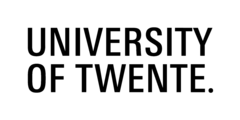Industrial Design Engineering

Winter intake start date
2026-02-01
Winter intake deadline
2025-11-25
Become a ‘designeer’ and enrich people’s lives with new and/or better products while continuously improving the development processes involved.
In your daily life, without realising, you are continuously surrounded by products. But who designed these products? Why are they shaped the way they are? What user demands do they meet, what processes lie behind the development and what technologies are involved in that process? That’s what the Master’s in Industrial Design Engineering (IDE) at the University of Twente (UT) is all about.
Specialisations
Emerging Technology Design (ETD)
Human Technology Relations (HTR)
Management of Product Development (MPD)
This two-year, English-taught Master’s enables you to become a ‘designeer’, an industrial design engineer who does not only know how to design and engineer a (part of a) product, but goes beyond that. With in-depth, scientific insights, you will learn to oversee the whole design and engineering process and know how to continuously develop and improve the products and the processes involved. In the end, it’s about developing products that enrich people’s lives.
Na studia magisterskie mogą kandydować wszyscy, którzy ukończyli studia licencjackie lub inżynierskie (studia I stopnia), studia magisterskie lub studiują na ostatnim roku studiów I-stopnia. Studia, które planujesz powinny mieć zbliżony profil do tych obecnych lub ukończonych, ponieważ w procesie rekrutacji kluczowa jest ich zgodność programowa.
- Wykaz punktów ECTS – osoby, które są jeszcze w trakcie studiów, muszą załączyć wypis punktów ECTS, w którym będzie wykazane, jakie przedmioty były realizowane na studiach oraz ile punktów za nie otrzymano.
- Dyplom ukończenia studiów licencjackich lub inżynierskich – jeśli jesteś absolwentem wyższej uczelni, nie potrzebujesz wypisu, wystarczy załączyć dyplom ukończenia studiów wraz z suplementem (w języku angielskim lub oryginał z tłumaczeniem)
- Uwaga! Każdy kierunek magisterski może mieć inne wymagania i wymagać specyficznych dodatkowych dokumentów. Przed aplikacją sprawdź na stronie uczelni, jakich dokumentów potrzebujesz!
WAŻNE! Opłata aplikacyjna - uczelnia pobiera opłatę aplikacyjną w wysokości 100 euro, którą należy uiścić przy składaniu aplikacji (podczas wysyłania formularza aplikacyjnego zostaniesz poinformowany, jak to zrobić). Tutaj można znaleźć więcej informacji na temat tej opłaty i jej wysokości. Opłata aplikacyjna jest opłacana wyłącznie raz, niezależnie od ilości wybranych kierunków na tej uczelni.
IELTS - 6.5
This program has an application fee of 100 euros. You can read more about it HERE.
Traditionally, the job prospects for designers have been closely linked to the overall economic situation. In times of economic growth, graduates were offered jobs even before they had completed the IDE programme.
In a declining economy, it can take longer for graduates to find suitable employment. However, the enormous potential of current new developments (such as smart products, smart environments and portable products) means that new industrial designers are likely to be in great demand. Both government and industry are increasingly convinced that innovation and smart design will play a very important role in the future of our society. The fact that Industrial Design is widening its scope to include services, product-service combinations, the design of environments, the management of product development and brand design also means that this field could soon become less dependent on the state of the economy. In the long run, the influence of design on society looks set to increase, boosting demand for highly educated professionals in this field.
IDE graduates go on to fulfil a range of jobs: industrial designer, product designer, product engineer, design engineer, design manager, product manager, interaction designer, researcher, usability consultant, design-centred researcher, strategic designer, brand manager, new product development project leader, innovation consultant and design-brand consultant.
